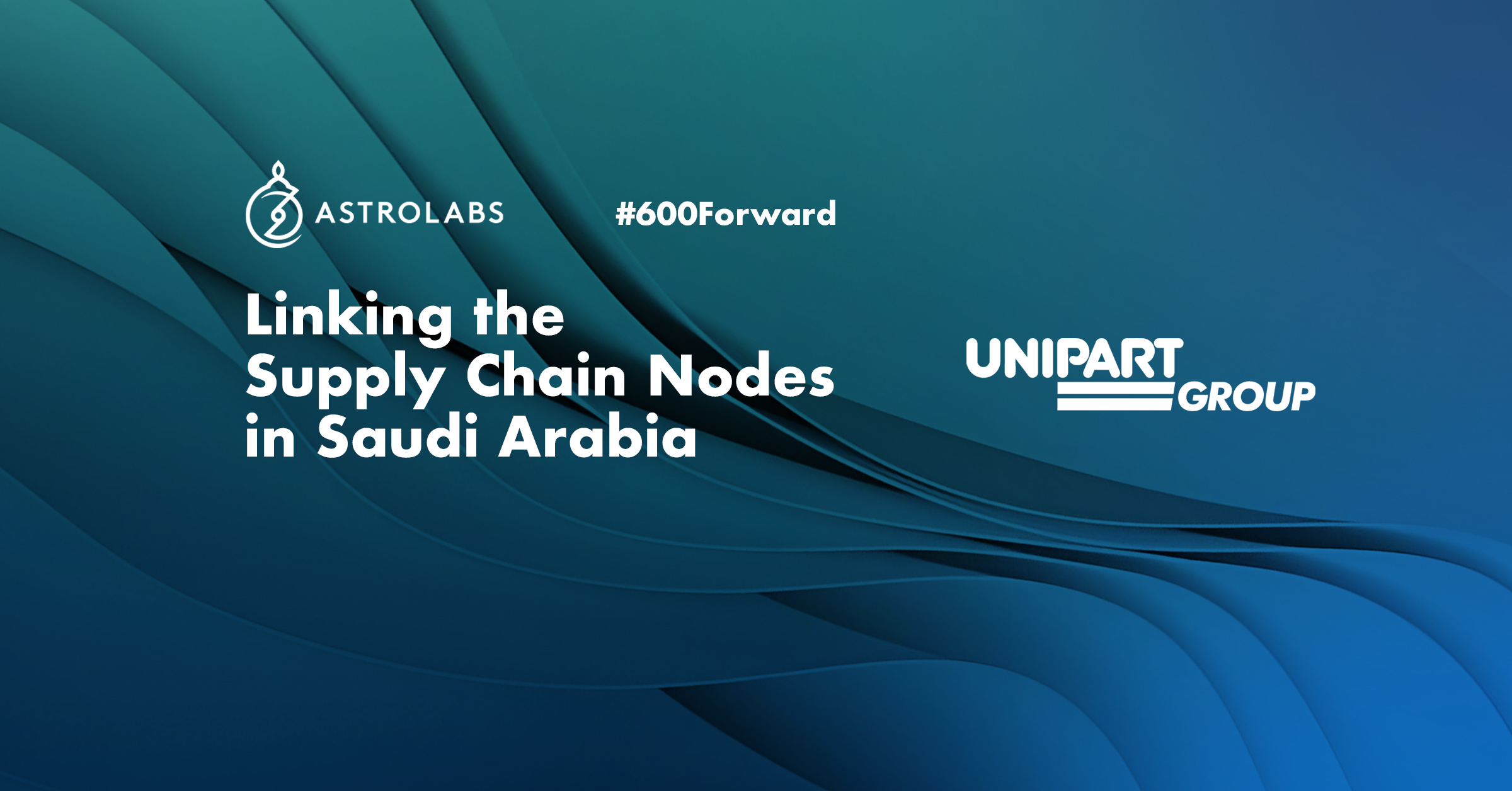Supply chain and logistics are key enabling factors in facilitating trade operations, stimulating economic growth, and maintaining fiscal stability. Recent years have seen Saudi Arabia emerge as a key point of entry in the region and beyond, making it easier for international companies to do business across borders and unlocking new opportunities for growth and expansion. Among them is one of the companies we expanded to Saudi Arabia, Unipart Group, a UK-based global provider of manufacturing, logistics, and consultancy services across a wide spectrum of sectors.
With offices in 20 countries worldwide, the company is increasingly looking to ramp up its operations in the Kingdom in the midst of ongoing improvement and modernization of supply chain practices and policies. To discuss the company’s reinvigorated interest in the Kingdom’s logistics space, we spoke to Tahir Malik, a country director at Unipart, during the “600 Forward” event, which took place earlier in February at AstroLabs’ headquarters in Riyadh, marking a milestone of being the expansion partner for 600 companies that recently set foot in the Kingdom.
Unipart’s Saudi Expansion and Market Outlook
The logistics sector lies at the heart of the transformation envisioned by Saudi Arabia, as it seeks to morph into a global logistics hub by ramping up its supply chain across different modes of transportation—air, sea, rail, and road. Within its Vision 2030, the transport and logistics sector is expected to contribute 10% to the GDP by 2023, up from a current 6% equivalent to SAR 20.1 ($5.5) billion.
Logistics in the country has evolved over the years, with the growth being attributed to an improved economy and infrastructure as well as rapid growth in e-commerce. As per estimates by global consulting firm Redseer, the size of digital sales in the Saudi market is expected to hit the $200 billion mark by 2030, driven by a rapidly digitizing population, rising internet penetrations surpassing 95%, and a flourishing business landscape. The growth of the logistics sector was recognized in the latest Global Logistics Performance Index 2023 published by the World Bank, with the Kingdom ranking 38th among the 139 listed countries, marking a jump of 17 points from the previous edition published in 2018.
Looking back, Malik shared that the market entry process was uncharted territory for a foreign company like Unipart, adding that working with AstroLabs, a business partner that knows the holy grain grail of the market, was paramount to achieving a better, quicker soft landing.
“Saudi Arabia, or the wider Middle East, was a completely new environment for us. So we started our journey here, and at the same time, we know that the legislation part is different. We know that there are some processes and procedures that are still in their infancy and where local knowledge is very important. Having a partner who knows the ins and outs of every single ministry, being a foreign company, we don’t know about them. AstroLabs brings that local knowledge, and that is helping drive success for us,” he added.
Malik pointed out that the strategic geographic location and increased governmental spending in the logistics sector are two major factors behind its rising relevance as an important and efficient logistics and supply chain management hub.
“Saudi Arabia is located at the crossroads of three continents: Asia, Europe, and America, making it a major global logistics hub. At the same time, the government is pumping $150 billion into logistics,” Malik explained.
Strategic investments in industrial infrastructure run parallel to the legal reforms overhauling the Kingdom’s cultural and economic landscape, opening up the country as a place to be for businesses and professionals from all over the world. For Malik, the political stability and recent measures adopted by the country to elevate social openness are among the reasons propelling the Kingdom’s ascent as a globally sought-after destination for business expansion.
Catalyzing Growth in Saudi’s Supply Chains
Since the launch of its operations in the Kingdom, Unipart has entered into joint ventures with strategic partners to accelerate the adoption of end-to-end, scalable, and sustainable supply chain solutions. Among its portfolio projects in Saudi Arabia is the flagship $500 billion NEOM, set to include Kingom’s first fully integrated port and supply chain ecosystem to enhance productivity and increase competitiveness.
Large-scale projects like NEOM remain an integral part of the country’s push to be a global logistics hub, but to further improve its industrialization efforts while enhancing domestic supply chains, the country also aims to launch a series of free economic zones (SEZs) scattered around the country to empower industrialization while empowering domestic supply chains.
Moreover, under the National Transport and Logistics Development Strategy (NTLDS), as many as 59 advanced logistics centers will be set up throughout the Kingdom by 2030, covering an area of over 100 million square meters. Out of which, 21 were already operational in 2022.
With its vibrant business and investment landscape as well as increased government focus on facilitating the growth and development of the supply chain sector in the local economy, the country is a prime target for logistics companies like Unipart, playing a pivotal role in triple industrial output and increasing the value of the Kingdom’s exports to over $149 billion by 2030.

